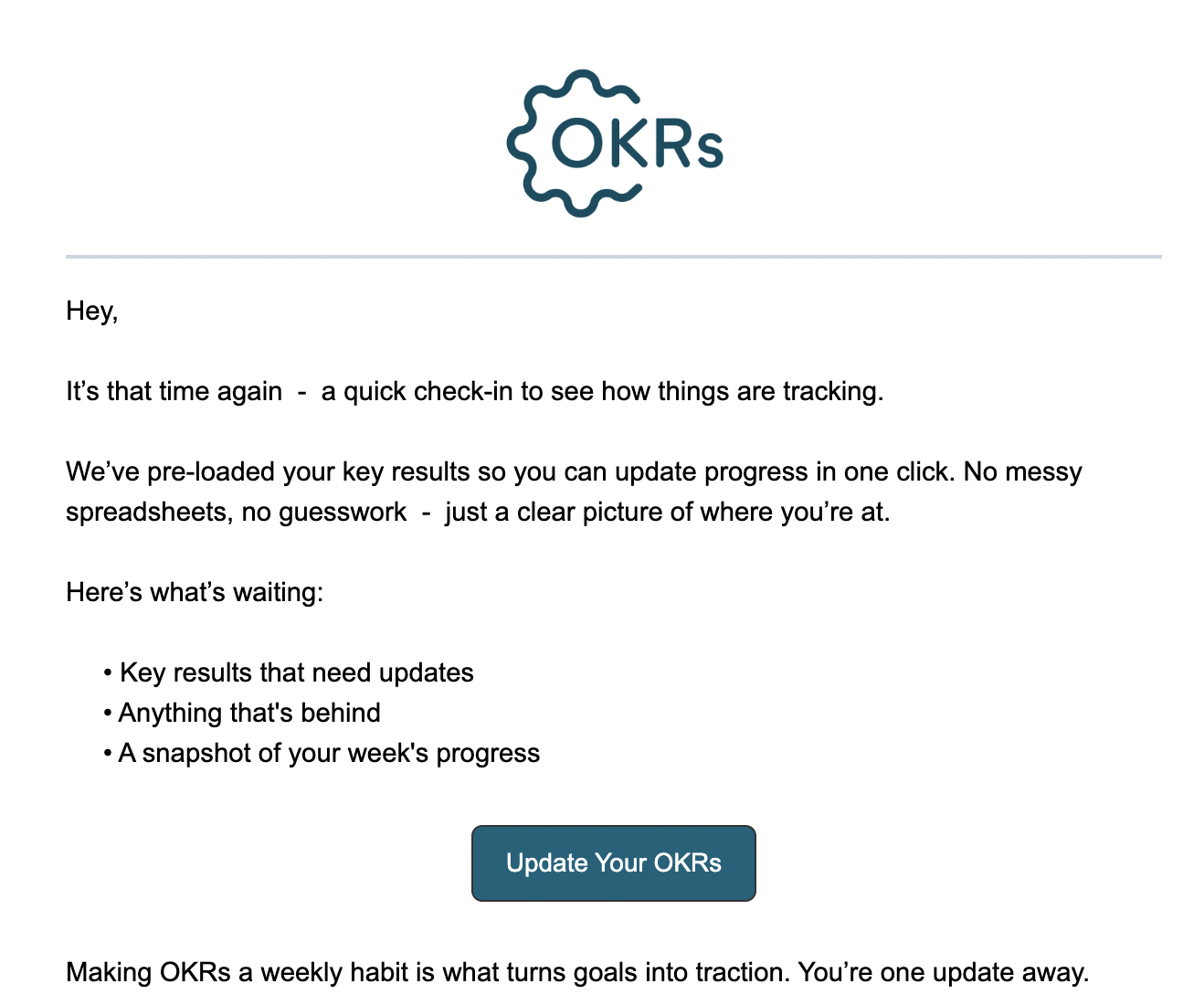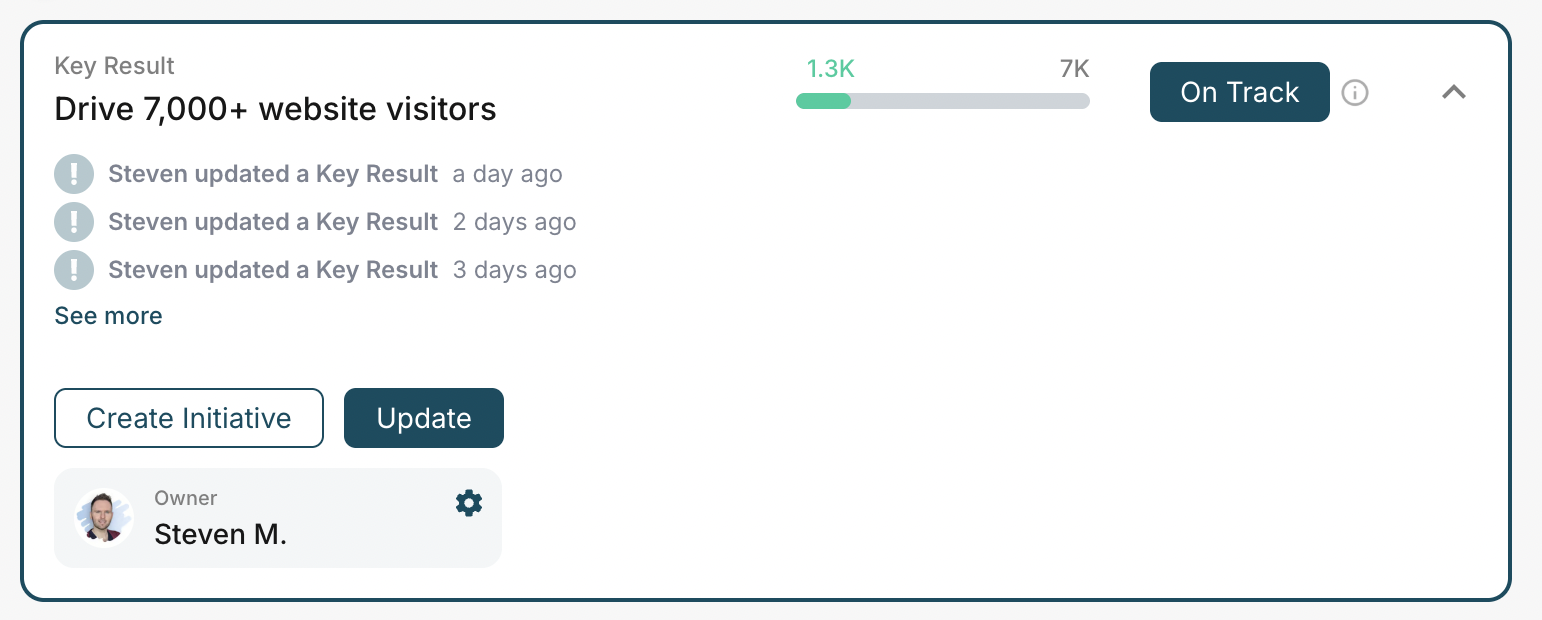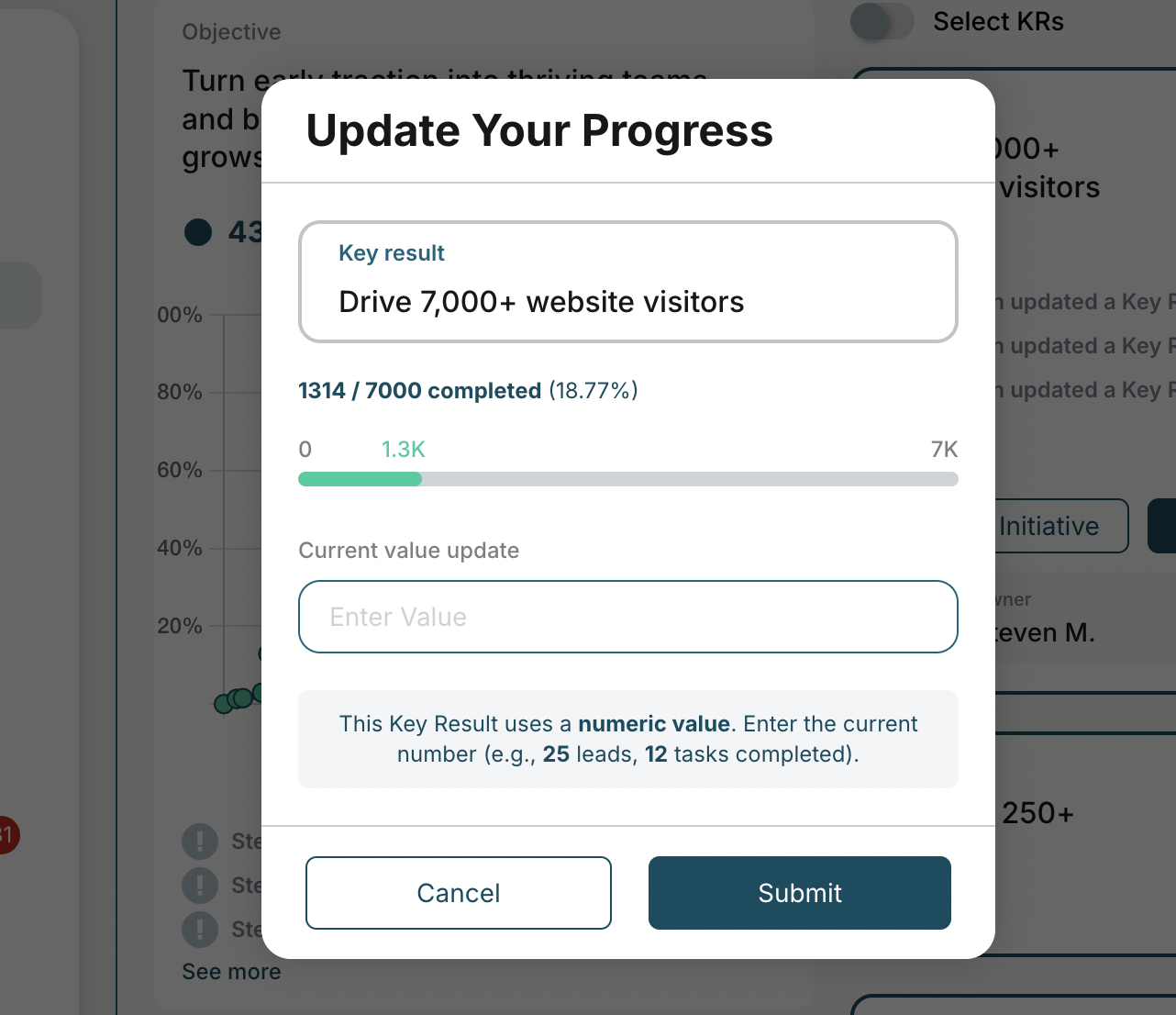You’ve got goals. You’ve launched OKRs. You even got initial team buy-in.
But a few weeks later… things start to drift.
People aren’t updating their progress. Check-ins get skipped. Teams start prioritizing other work. And before long, those carefully crafted OKRs are buried in a spreadsheet no one opens.
Sound familiar?
One of the most common reasons OKRs fail isn’t poor goal setting - it’s poor accountability.
In this article, we’ll dig into why accountability with OKRs is so hard, what’s really getting in the way, and how to fix it without adding more complexity to your workflow.
Whether you’re a founder, ops lead, or team manager trying to keep your goals on track, this guide is for you.
Why Accountability is the Hardest Part of OKRs
Let’s start with the obvious truth: most teams aren’t lazy - they’re overloaded.
They’re moving fast, juggling projects, shipping features, supporting customers, and solving problems on the fly. If OKRs aren’t actively supporting that momentum, they get deprioritized - even if everyone likes the idea of OKRs.
Here’s what that looks like in real life:
- You set great goals, but forget to revisit them.
- Team members are unclear on what counts as progress.
- There’s no rhythm for updates, so you only check in at the end of the quarter.
- OKRs feel disconnected from day-to-day work.
At that point, even the best goals become irrelevant.
But why is this so common?
Because OKR accountability is a process problem, not a motivation problem. Most teams don’t lack effort - they lack structure. And without a simple system for tracking, reviewing, and owning progress, OKRs lose their stickiness.
The Top Accountability Challenges (from Real Teams)
After reviewing hundreds of feedback responses from early-stage startups, we found clear patterns in the accountability struggles teams face:
- Inconsistent Check-ins
Teams often start strong, but quickly fall out of the habit of regular updates. When you don’t review weekly or biweekly, goals fade into the background. - Progress Isn’t Tracked in One Place
OKRs live in a spreadsheet. Updates live in Slack. Status lives in someone’s head. This fragmentation kills momentum. - Too Much Manual Effort
If someone has to ping people for updates, copy them into a doc, and summarize it for a meeting - that process will break the moment things get busy. - Lack of Ownership
If it’s not clear who owns each objective or key result, nobody feels responsible for updating it. - OKRs Treated Like a Silo
When OKRs are “another thing” instead of part of your weekly workflow, they start to feel like a chore - and get skipped. - No Clear Success Metrics
Vague or subjective key results make it difficult to know what progress actually looks like.
How to Build Real OKR Accountability (Without More Admin Work)
Fixing accountability doesn’t mean holding more meetings or sending more Slack reminders. It means designing your OKR system to support consistent, lightweight follow-through.
Here’s how to do that:
1. Build a Repeatable Check-in Rhythm
You don’t need a full team meeting every week to review OKRs. A simple async check-in every Monday or Friday can go a long way.
Ask team members to:
- Update their key result progress.
- Add a quick note on what moved (or didn’t).
- Flag any blockers.
Even a 5-minute ritual like this helps keep OKRs visible, fresh, and relevant.
Tip: Use OKR software to send automatic nudges so check-ins happen without manual follow-up.

2. Assign Clear Owners for Every KR
Accountability thrives when everyone knows exactly who’s responsible.
Every Key Result should have one clear owner. That doesn’t mean they do all the work - it means they’re the one responsible for tracking progress, surfacing blockers, and driving follow-up.
Why it matters:
- It reduces ambiguity.
- It eliminates the bystander effect (“someone else will handle it”).
- It empowers individuals to lead outcomes.
Avoid shared ownership wherever possible. When multiple people “sort of” own something, no one truly does. Instead, make sure every KR has a name next to it - and that person knows what they’re accountable for.

3. Use Real-Time Dashboards
Spreadsheets aren’t built for real-time collaboration. Instead, use a tool that shows a live dashboard view of your OKRs - progress bars, recent check-ins, comments, and all.
Why it matters:
- Progress is visible to the whole team.
- Leadership can spot trends or bottlenecks early.
- Team members feel a sense of momentum.

4. Integrate OKRs Into Your Weekly Workflow
OKRs shouldn’t live in a vacuum. The more they’re connected to daily tools and team rhythms, the more likely they are to stay top-of-mind.
Ways to do this:
- Review OKRs during team standups.
- Include KR progress in 1:1s.
- Link tasks in your project tool back to OKRs.
Make OKRs part of how you operate - not something you dust off at the end of the quarter.
5. Make It Easy to Update
If updating OKRs takes more than a minute or two, people won’t do it.
That’s why OKRs Tool was designed with speed in mind (less than 30 seconds per week):
- Pre-built templates.
- One-click updates.
- Clean interface with no fluff.
- Auto-nudges to keep things moving.

6. Celebrate Progress and Learn from Misses
At the end of each cycle:
- Celebrate completed key results.
- Reflect on what didn’t move and why.
- Use learnings to write better OKRs next time.
When OKRs become a tool for learning (not blame), people are more likely to engage and improve.
Common OKR Accountability Challenges & How to Fix Them
If you're short on time, here’s a quick breakdown of the most common OKR accountability challenges - and what actually works to solve them. Use this as a checklist or gut check for your team.
Tackling even one or two of these areas can make a big difference. Accountability isn’t about perfection - it’s about building simple habits that keep goals visible, owned, and moving forward.
Final Thoughts
You don’t need more meetings, more pressure, or more spreadsheets.
You just need a system that makes it easy to stay on track.
Accountability isn't about micromanagement - it's about clarity, ownership, and rhythm. And when you give your team the tools and habits to support that, OKRs stop being a document… and start becoming part of how your company runs.





